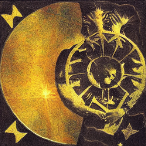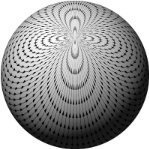Leaderboard
Popular Content
Showing content with the highest reputation on 03/31/23 in all areas
-
No hypothesis or theory can be be conceived in a vacuum without reference to, and agreement with, what we already know. A hypothesis is your idea, and a theory is what you use to test it via principles contained within it.2 points
-
1 point
-
They've been taken seriously for a long time, by the right people.1 point
-
The idea of Clark Tech, FTL is chief among them, suggests that we already know enough about how the universe works to be able to limit what aliens can do. I tend to agree with this, the idea of magical tech and or super beings doesn't sit well with me of course not more than a century or so ago we thought a great many things were impossible or simply unknown to us. Known unknowns and unknown unknowns, sometimes referred to as black swan events. Looking outside the box shouldn't mean we know enough to flatly know where the box begins and ends or even if there is a box. I'm not sure that is justified, sometimes serendipity plays a big part in science. I don't think anyone was expecting photographic plates to result in the finding of radioactivity. There are ?? stars within 100 light years of Earth, with a google search I seem to be getting a wide array of answers from 76 to 5900, I'm not sure which is accurate. You are assuming a Star Trek type pattern of exploring/colonising the galaxy. A more rational method would be either sending out intelligent machines to do the job or sending out colonizers who get to a new star system, colonise with artificial habitats and then send out their own colonizers to new star systems. Habitable planets are not required and maybe even ignored completely except for a few specialists looking to study life and or aliens. It might take several million years but that is a blink of the eye in deep time. Good question but it's also possible that to them our weapons are no more dangerous than thrown rocks to one of our own weapons systems.1 point
-
I was referring to detecting evidence of civilisation on Earth. The medium will be electromagnetic and wireless is the earliest consistently emitted signal I can think of.1 point
-
It's a tool and it is up to people what to do with it. This tool can make bad things easier, faster, cheaper to do. Imagine scientific journal boards flooded with plagiarized and fake but well composed manuscripts. SFn flooded with fake science news, machine generated comments, political propaganda etc. Google search returning false results from non-existing sources... These are just a few innocent examples.1 point
-
I suppose in theory, as it is water that is absorbing the microwaves, once it has gone the silica gel should cool down, as it should be transparent to microwaves of the frequency used. So the process ought to be OK, I think.1 point
-
Yes, agreed. I agree, this is all we have to go on that is rigorous. There are scientists who are considering hypothesis which sit outside the constraints of Relativity. Was it Eric Weinstein who said something along the lines of "Einstein's jail". Ok, we can all let our imaginations run wild and speculate on wormholes and warp drives and so on... this is all sci-fi, pseudo science and/or at best conjecture. So i'm in agreement that we should consider possibilities that fit within our current understanding of physical laws. Based on this both you and String Junky have very logical and valid points.1 point
-
We can only make hypotheses based on theories that work for us now. Until we have other reliable theories, we are stuck with GR. We can't say anything meaningful until then. It's great to have imagination, but it has to withstand the rigors of experimental analysis, and agree with prevailing theory and observation.1 point
-
Again I agree and not arguing, I would form the same logical conclusion. But playing devils advocate, we are assuming detection within GR frame work. Ok so my point really is this, we would all agree that if its possible that aliens are capable of visiting us, then they are going to be far more advanced in physics and technology than we are, and possibly could currently imagine. At this point I'm not arguing against you, I'm in full agreement with your premise and would and do form the same logical conclusions based on our current known and verified physical models of reality. But I can't help thinking, we are struggling to consolidate quantum gravity models with GR models, just for one example. Both which we believe to be true based on data, math and experimental observation. So, if we are missing something here and now then what other possibilities are we yet to discover?1 point
-
The furthest indication of our presence is from when the wireless was invented. Our aliens can't be any more than about 130lyrs from Earth (1894 wireless invented) otherwise we are undetectable. We now need to think about the probability of there being aliens in that 130lyr radius. I would say our ability to detect objects up to that distance is pretty good. How many 130lyrs spheres can you fit in 100 000 lyr galaxy, like ours? We are in just one of those spheres. Beyond that sphere, evidence of our presence is unavailable by the rules of Relativity.1 point
-
Why not? Because "in space travel the numbers are awful".1 point
-
Why not? I'm not saying you are wrong. I'm just intrigued as to why you don't think they are in our neighbourhood? Just trying to understand the logic. If you think the likelihood of aliens is pretty high, then by what factor do you draw the conclusion that they are not close by? Just playing devils advocate. This premise is based on the assumption that alien tech would pretty much follow our own. We can only really use our tech to find known tech of similar capability. A simple analogy would be where an island has a group of people who can only communicate by beating drums or using smoke signals. They would be looking for the same or similar methods from other islanders to discern whether they are alone. But if the other islands have discovered radio for communication they will still easily hear and see the drums and smoke, but if they themselves chose to, remain fairly undetected.1 point
-
I didn't ask, what you can do. I've asked, For the reference, here is where you said it:1 point
-
You have to be careful what you wish for. The last person given three wishes wished that his dick would reach the floor, and his legs fell off.1 point
-
Oh, don't threaten me with a good time. Perhaps Disney will send in Basil to solve the murders!1 point
-
It appears that your suggestion is to look for a needle in a haystack without knowing anything about the needle or the haystack.1 point
-
We're going to start seeing royal descendants die off, like we're in an Agatha Christie novel.1 point
-
Better late than never, sorry for waiting so long. I fully agree. I would even take it one step further. 'Interactions', I would say, are causal relationships. The natural sciences look at nature through 'causal spectacles'. A phenomenon is explained, at least for the moment, if we have a causal explanation. Of course, it may turn out later, that the explanation is not correct, or not complete, when we get new experimental data, or more precise background theories. If we (think we) know all possible causal relationships that an entity has, then we could say we know this entity. E.g. if we know all possible causal connections that an electron can have, then we could say we know what an electron is. To try to 'look behind the scenes' what an electron 'really' is, is a scientific empty question. It is at most an ontological question. Yeah, I think this distinction is still useful, especially to describe the limitations of quantum theory: we encounter there a limit where we have no causal explanation anymore. There is no one to one connection with a cause and its precise effect. So as I expressed elsewhere, the 'wave-function' is itself not measurable, it only allows for statistical predictions: it is the limit of what we can say about nature. The 'electron-as-a-thing-in-itself' disappears behind its statistical, causal behaviour. Scientifically we cannot say more. You confuse critics of the modern 'main stream physics', with people who study the fundamentals of physics. There are many people engaged in this topic. Just google 'philosophy of physics'. And it also seems you forgot, in your previous reaction, how much was discussed by the 'fathers of QM'. I agree with both articles linked in this thread: the one of Katie Mack, with which Swansont started the thread, and the Mermin article ("What's bad about this habit").1 point
-
It's the Euclidean algorithm. Study this page and work out some examples by hand to see how it works. https://en.wikipedia.org/wiki/Euclidean_algorithm Actually the Wiki page is a little confusing, here's a simpler one I found. https://sites.math.rutgers.edu/~greenfie/gs2004/euclid.html1 point
-
Wiki page on modulo operation(%) may be of help too. https://en.m.wikipedia.org/wiki/Modulo1 point
-
The algorithm uses the fact that if x is GCD of a and b then it is GCD of a and b % a. It looks for the GCD using recursion. For example, take 21 and 15. Look for their GCD. 21 % 15 = 6. Look for GCD of 15 and 6. 15 % 6 = 3. Look for GCD of 6 and 3. 6 % 3 = 0. Aha! Return 3, this is the GCD.1 point
-
1 point
-
Yes. None. In some places, a lot. On average, about as much as anywhere else.1 point
-
Seriously? What amount of light is on the real ocean bottom? What amount of nutrients (in the prehistoric sea) are on the ocean bottom? Check the average depth of the world's ocean.. https://www.google.com/search?q=average+depth+of+the+world's+ocean The existence of organisms on the ocean floor (except for volcanoes) depends on "marine snow": https://en.wikipedia.org/wiki/Marine_snow1 point
-
I guess your happy, whatever shit you spout; good luck...😉 I thought it was implied, but I'm happy for you because you're naturally immune to scams. 🙂-1 points
-
-1 points
-
Indeed, I've read your input on a few topics, most recently a climate related one.-1 points












